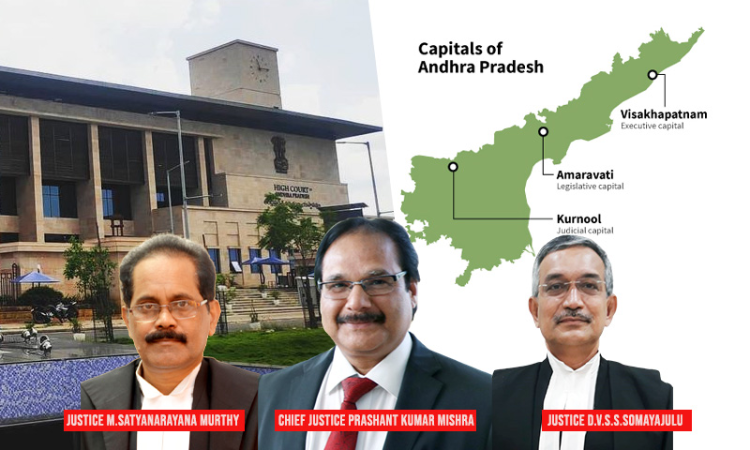Andhra Pradesh High Court Directs State Govt To Complete Construction Of Amaravati-Capital Region In 6 Months
Sparsh Upadhyay
3 March 2022 5:01 PM IST

Next Story
3 March 2022 5:01 PM IST
In a significant development, the Andhra Pradesh High Court has directed the State government to construct and develop Amaravati capital city and capital region within six months as agreed in the terms and conditions under the provisions of APCRDA Act of 2014 [brought by the previous Telugu Desam Party's regime] and Land Pooling Rules, 2015. A Full Bench of Chief Justice Prashant...
